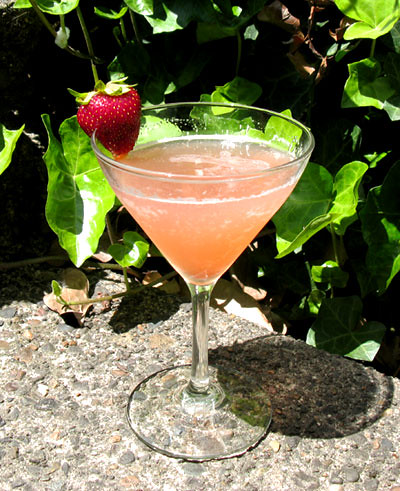 People seem to be talking a lot about intuitive cooking lately. You have books like Ratio which hope to inspire more of it. You have the great chefs who talk about a cook's intuition and its role in creativity. Then you have just regular people who are working on their own skills and realize that at some point you have to put the book away and just cook.
People seem to be talking a lot about intuitive cooking lately. You have books like Ratio which hope to inspire more of it. You have the great chefs who talk about a cook's intuition and its role in creativity. Then you have just regular people who are working on their own skills and realize that at some point you have to put the book away and just cook.The Amateur Gourmet did a post on making your own ginger ale where he put the book away. To sum up, he had a recipe for the world's greatest ginger ale, in my humble opinion, and he just sort of put it together with what he had. It turned out great. This is the kind of subtle inspiration I love. You have a formula, a basic idea, a technique, a structure and then you just play around it.
I had some rhubarb. I thought, that would be good with ginger ale. And then I thought that I like honey with rhubarb better than sugar. So why not replace it? Well, honey can be a little strong, so why not cut the honey with agave? Sugar free rhubarb ginger ale?
Well, why not?
Now, I work in a professional kitchen, so I've learned one thing about these kinds of experiments that you don't always learn at home: You need to be able to replicate something good. Take Notes. So these are my notes:
175 g chopped rhubarb - 1 good stalk
100 g chopped ginger
150 g agave
50 g honey
350 g water
simmer to syrup, taste and adjust, 15 minutes +, rhubarb mushy. Strain. Chill. Mix with club soda/spark h20.
What you don't see with these notes are the cross outs, the scribbles. I started with 50 grams of ginger and after first taste, dumped in 50 more. I could have gone higher. There is a note about adding a squeeze of lemon, which would probably be nice. The word "strawberry?" appears and I'm sure that would really be nice. I may do that one next. I may do strawberry on its own. Someone else may have added more honey but I don't like that much sweet. I didn't even note the syrup consistency because I eyeballed it. It wasn't important, compared to the flavor. I could make this again with the notes I have, but I could do a lot more as well.
It is bare bones, not really a recipe, but I think that may be the best thing about it. It encourages adaptation. What is the most important part of cooking intuitively? Why is it so attractive? Because there is a chance that you will come up with something really good or really awful. Recipes can fail, yes, but that sort of failure is personal, you are more likely to blame yourself - what did I do wrong? The recipe must be right (although eventually you learn that isn't true.).
If you have no recipe and you fail, it raises more questions. Why did this not work? What can I change? Will it work if I do this instead? And if you succeed, those same questions are there. Why did this work? Will it work if I do this instead? What can I change? Freedom to fail and learn so you can fall and rise up again. Freedom to just cook, to just play. That is why you develop your intuition.

5 comments:
This sound fabulous! I'll be trying it when I figure out where one gets Agave!
Thank you! If you have a store near you with a decent natural food/organic section, you may find agave there. Otherwise, you can always just add more honey (or use sugar). The sweetness is to your taste.
I enjoy trying new ideas. Today at the grocers, I was checking out the rhubarb to make tarts, but now you have given me a better idea for Father's Day brunch!
Thanks!
That sounds great - I bookmarked this to try!
This sounds pretty tasty! I enjoy making my own creations too, so your blog entry was pretty interesting, as well. Thanks for posting this interesting creation.
Post a Comment